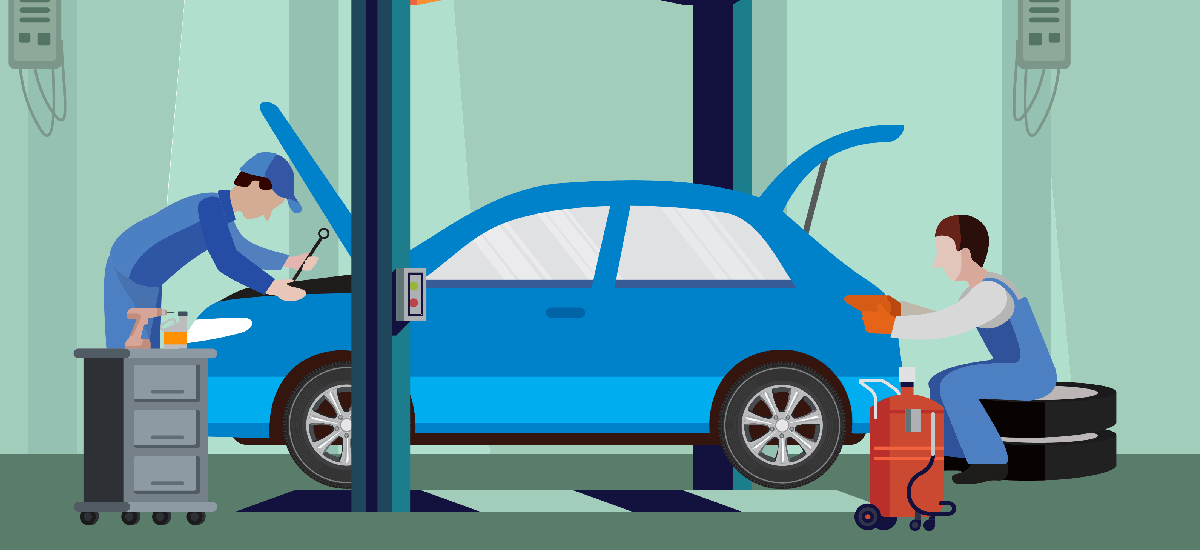All Categories
Featured
The timing belt is a vital part of your engine, liable for synchronizing the activity of various engine parts, such as the crankshaft and camshaft. This makes certain the engine's shutoffs close and open at the right times during the combustion cycle. While the timing belt may not be something you think of often, overlooking its upkeep can cause substantial engine damages and costly fixings. Below's why timing belt replacement is essential for your car's longevity and performance.
What Is a Timing Belt and How Does It Work? The timing belt is a rubber or composite material belt that links the crankshaft to the camshaft in an interior combustion engine. The camshaft regulates the opening and closing of the engine's consumption and exhaust shutoffs, and it needs to be timed completely with the motion of the pistons in the engine. The timing belt makes sure that these elements are in sync, allowing the engine to run smoothly.
If the timing belt becomes or falls short broken, the camshaft and crankshaft will no longer be synchronized, which can trigger the engine's valves to hit the pistons. This causes disastrous engine damage and frequently requires expensive repair work or perhaps an engine replacement.
Why Is Timing Belt Replacement Important? With time, the timing belt can wear down as a result of friction, heat, and general engine wear. While it may appear like a small issue, a defective timing belt can result in severe engine troubles. Below's why prompt substitute is vital:
Protecting Against Engine Damage: As stated, a busted or sliding timing belt can create the engine's pistons and shutoffs to collide. This leads to curved valves, harmed pistons, and in serious instances, a total engine failing. Replacing the timing belt before it breaks can avoid this costly damages.
Keeping Engine Performance: A damaged timing belt can interrupt the synchronization of the engine elements, decreasing general engine performance. Changing the belt aids preserve ideal engine function, making certain smooth procedure, improved gas performance, and much better efficiency.
Preventing Unanticipated Break down: A busted timing belt can leave you stranded on the side of the road, causing a significant inconvenience. By changing the timing belt at the recommended periods, you can avoid the threat of an unexpected break down, specifically in the center of a long journey or when you the very least anticipate it.
![]()
Saving Money in the future: While timing belt substitute can feel like an expense you might intend to avoid, it's much less expensive than the price of fixing or replacing a harmed engine. The replacement expense is reasonably affordable contrasted to the considerable repairs called for if the timing belt breaks. Aggressive maintenance can conserve you hundreds of dollars out of commission and preserve your car's value.
When Should You Change the Timing Belt? The timing belt replacement routine can vary relying on your lorry's make and design. In basic, most manufacturers advise replacing the timing belt every 60,000 to 100,000 miles. Nonetheless, it's always best to consult your proprietor's manual or a relied on auto mechanic for specific suggestions for your vehicle.
Signs that your timing belt might require replacement consist of unusual engine noises such as ticking or whining, difficulty beginning the engine, or a recognizable decline in engine performance. It's important to have the timing belt evaluated instantly. if you experience any of these signs and symptoms.
![]()
Final thought. Replacing the timing belt at the suggested periods is a key component of keeping your engine's health and making certain that your lorry runs efficiently. A busted timing belt can lead to expensive repair work, engine failure, and unexpected breakdowns, which can be prevented with appropriate upkeep.
What Is a Timing Belt and How Does It Work? The timing belt is a rubber or composite material belt that links the crankshaft to the camshaft in an interior combustion engine. The camshaft regulates the opening and closing of the engine's consumption and exhaust shutoffs, and it needs to be timed completely with the motion of the pistons in the engine. The timing belt makes sure that these elements are in sync, allowing the engine to run smoothly.
If the timing belt becomes or falls short broken, the camshaft and crankshaft will no longer be synchronized, which can trigger the engine's valves to hit the pistons. This causes disastrous engine damage and frequently requires expensive repair work or perhaps an engine replacement.
Why Is Timing Belt Replacement Important? With time, the timing belt can wear down as a result of friction, heat, and general engine wear. While it may appear like a small issue, a defective timing belt can result in severe engine troubles. Below's why prompt substitute is vital:
Protecting Against Engine Damage: As stated, a busted or sliding timing belt can create the engine's pistons and shutoffs to collide. This leads to curved valves, harmed pistons, and in serious instances, a total engine failing. Replacing the timing belt before it breaks can avoid this costly damages.
Keeping Engine Performance: A damaged timing belt can interrupt the synchronization of the engine elements, decreasing general engine performance. Changing the belt aids preserve ideal engine function, making certain smooth procedure, improved gas performance, and much better efficiency.
Preventing Unanticipated Break down: A busted timing belt can leave you stranded on the side of the road, causing a significant inconvenience. By changing the timing belt at the recommended periods, you can avoid the threat of an unexpected break down, specifically in the center of a long journey or when you the very least anticipate it.

Saving Money in the future: While timing belt substitute can feel like an expense you might intend to avoid, it's much less expensive than the price of fixing or replacing a harmed engine. The replacement expense is reasonably affordable contrasted to the considerable repairs called for if the timing belt breaks. Aggressive maintenance can conserve you hundreds of dollars out of commission and preserve your car's value.
When Should You Change the Timing Belt? The timing belt replacement routine can vary relying on your lorry's make and design. In basic, most manufacturers advise replacing the timing belt every 60,000 to 100,000 miles. Nonetheless, it's always best to consult your proprietor's manual or a relied on auto mechanic for specific suggestions for your vehicle.
Signs that your timing belt might require replacement consist of unusual engine noises such as ticking or whining, difficulty beginning the engine, or a recognizable decline in engine performance. It's important to have the timing belt evaluated instantly. if you experience any of these signs and symptoms.

Final thought. Replacing the timing belt at the suggested periods is a key component of keeping your engine's health and making certain that your lorry runs efficiently. A busted timing belt can lead to expensive repair work, engine failure, and unexpected breakdowns, which can be prevented with appropriate upkeep.
Latest Posts
The Benefits of Personalized Furnishings: Why It's Worth the Investment
Published Jan 07, 25
0 min read
The Complete Guide to Automotive Repair Work Insurance
Published Jan 07, 25
0 min read
What Are the Differences In Between Contemporary and Conventional Furnishings Styles?
Published Jan 06, 25
0 min read
More
Latest Posts
The Benefits of Personalized Furnishings: Why It's Worth the Investment
Published Jan 07, 25
0 min read
The Complete Guide to Automotive Repair Work Insurance
Published Jan 07, 25
0 min read
What Are the Differences In Between Contemporary and Conventional Furnishings Styles?
Published Jan 06, 25
0 min read